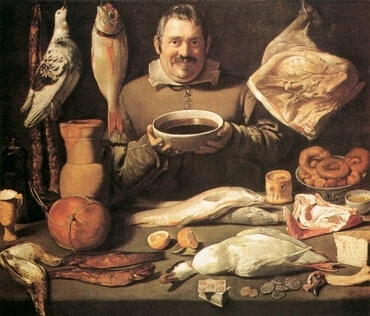1
ויהי בימים ההם ומלך אין בישראל ויהי איש לוי גר בירכתי הר אפרים ויקח לו אשה פילגש מבית לחם יהודה׃
2
ותזנה עליו פילגשו ותלך מאתו אל בית אביה אל בית לחם יהודה ותהי שם ימים ארבעה חדשים׃
3
ויקם אישה וילך אחריה לדבר על לבה להשיבו ונערו עמו וצמד חמרים ותביאהו בית אביה ויראהו אבי הנערה וישמח לקראתו׃
4
ויחזק בו חתנו אבי הנערה וישב אתו שלשת ימים ויאכלו וישתו וילינו שם׃
5
ויהי ביום הרביעי וישכימו בבקר ויקם ללכת ויאמר אבי הנערה אל חתנו סעד לבך פת לחם ואחר תלכו׃
6
וישבו ויאכלו שניהם יחדו וישתו ויאמר אבי הנערה אל האיש הואל נא ולין ויטב לבך׃
7
ויקם האיש ללכת ויפצר בו חתנו וישב וילן שם׃
8
וישכם בבקר ביום החמישי ללכת ויאמר אבי הנערה סעד נא לבבך והתמהמהו עד נטות היום ויאכלו שניהם׃
9
ויקם האיש ללכת הוא ופילגשו ונערו ויאמר לו חתנו אבי הנערה הנה נא רפה היום לערב לינו נא הנה חנות היום לין פה וייטב לבבך והשכמתם מחר לדרככם והלכת לאהלך׃
10
ולא אבה האיש ללון ויקם וילך ויבא עד נכח יבוס היא ירושלם ועמו צמד חמורים חבושים ופילגשו עמו׃
11
הם עם יבוס והיום רד מאד ויאמר הנער אל אדניו לכה נא ונסורה אל עיר היבוסי הזאת ונלין בה׃
12
ויאמר אליו אדניו לא נסור אל עיר נכרי אשר לא מבני ישראל הנה ועברנו עד גבעה׃
13
ויאמר לנערו לך ונקרבה באחד המקמות ולנו בגבעה או ברמה׃
14
ויעברו וילכו ותבא להם השמש אצל הגבעה אשר לבנימן׃
15
ויסרו שם לבוא ללון בגבעה ויבא וישב ברחוב העיר ואין איש מאסף אותם הביתה ללון׃
16
והנה איש זקן בא מן מעשהו מן השדה בערב והאיש מהר אפרים והוא גר בגבעה ואנשי המקום בני ימיני׃
17
וישא עיניו וירא את האיש הארח ברחב העיר ויאמר האיש הזקן אנה תלך ומאין תבוא׃
18
ויאמר אליו עברים אנחנו מבית לחם יהודה עד ירכתי הר אפרים משם אנכי ואלך עד בית לחם יהודה ואת בית יהוה אני הלך ואין איש מאסף אותי הביתה׃
19
וגם תבן גם מספוא יש לחמורינו וגם לחם ויין יש לי ולאמתך ולנער עם עבדיך אין מחסור כל דבר׃
20
ויאמר האיש הזקן שלום לך רק כל מחסורך עלי רק ברחוב אל תלן׃
21
ויביאהו לביתו ויבול לחמורים וירחצו רגליהם ויאכלו וישתו׃
22
המה מיטיבים את לבם והנה אנשי העיר אנשי בני בליעל נסבו את הבית מתדפקים על הדלת ויאמרו אל האיש בעל הבית הזקן לאמר הוצא את האיש אשר בא אל ביתך ונדענו׃
23
ויצא אליהם האיש בעל הבית ויאמר אלהם אל אחי אל תרעו נא אחרי אשר בא האיש הזה אל ביתי אל תעשו את הנבלה הזאת׃
24
הנה בתי הבתולה ופילגשהו אוציאה נא אותם וענו אותם ועשו להם הטוב בעיניכם ולאיש הזה לא תעשו דבר הנבלה הזאת׃
25
ולא אבו האנשים לשמע לו ויחזק האיש בפילגשו ויצא אליהם החוץ וידעו אותה ויתעללו בה כל הלילה עד הבקר וישלחוה בעלות השחר׃
26
ותבא האשה לפנות הבקר ותפל פתח בית האיש אשר אדוניה שם עד האור׃
27
ויקם אדניה בבקר ויפתח דלתות הבית ויצא ללכת לדרכו והנה האשה פילגשו נפלת פתח הבית וידיה על הסף׃
28
ויאמר אליה קומי ונלכה ואין ענה ויקחה על החמור ויקם האיש וילך למקמו׃
29
ויבא אל ביתו ויקח את המאכלת ויחזק בפילגשו וינתחה לעצמיה לשנים עשר נתחים וישלחה בכל גבול ישראל׃
30
והיה כל הראה ואמר לא נהיתה ולא נראתה כזאת למיום עלות בני ישראל מארץ מצרים עד היום הזה שימו לכם עליה עצו ודברו׃







